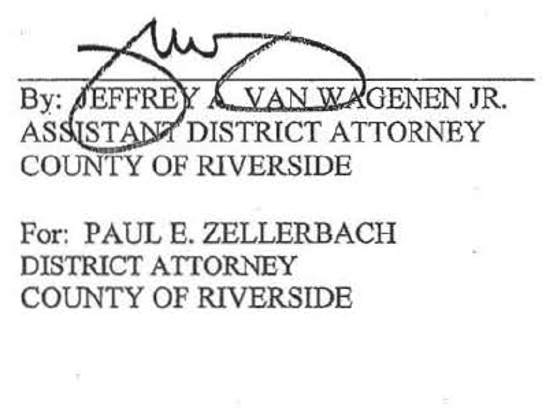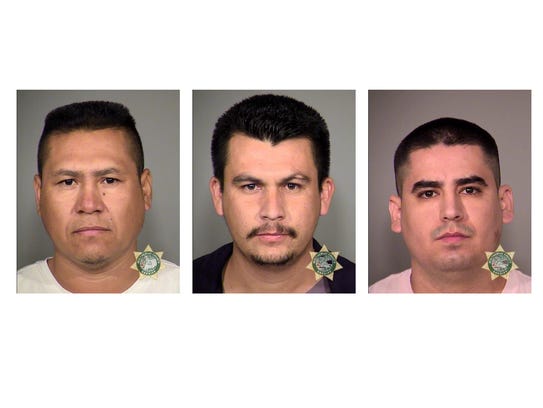Luke Skywalker
Super Moderator
{vb:raw ozzmodz_postquote}:
Prosecutors dropped criminal charges against four people linked to Khmer Sarmey Jewelry in Long Beach, Calif. because they concluded that wiretaps the DEA used in a money laundering investigation were illegal.(Photo: Sean Fujiwara, USA TODAY)
Federal drug agents spent months watching a tiny California jewelry store sandwiched between an auto<span style="color: Red;">*</span>parts shop and an apartment house with bars on its windows. They secretly recorded its<span style="color: Red;">*</span>owner’s phone calls and intercepted couriers carrying away boxes full of cash, sometimes stuffed with $100,000 or more. For more than a year, they gathered evidence that the store was laundering millions of dollars for drug traffickers.
Then, in the space of a few minutes in October, their whole case fell apart.
Prosecutors determined that wiretaps the U.S. Drug Enforcement Administration <span style="color: Red;">*</span>used as the core of its investigation were illegal<span style="color: Red;">*</span>and couldn’t be used in court. Four suspects went free, and they<span style="color: Red;">*</span>want the government to give back nearly $800,000 <span style="color: Red;">*</span>drug agents seized.
“These people were dealing in drugs, and they are guilty, and because of a procedural issue and a suppression motion, they got away with it,” said Mike Ramos, the district attorney in San Bernardino, Calif., whose office prosecuted the case.
The wiretaps<span style="color: Red;">*</span>prosecutors concluded were<span style="color: Red;">*</span>illegal had been approved by officials in Riverside County, Calif., a Los Angeles suburb responsible for nearly a fifth of all U.S. wiretaps last year. An investigation last month by USA TODAY and The Desert Sun found that prosecutors there almost certainly violated a federal law that requires the district attorney to personally sign off on wiretap applications. Those tainted wires were used to make arrests and seizures throughout the USA.
More of those cases could be in peril, and the abrupt end of the San Bernardino money laundering case offers a vivid example of how significant the consequences could be. Court records show the DEA used wiretaps with the same legal flaw to build cases in California, Kentucky, Oregon and Virginia. State and federal prosecutors are beginning to review those cases to see whether they can go forward.
“All those cases need to be kicked, and there should be no hesitation to do it,” said Glen Jonas, a California lawyer who represented one of the suspects in the San Bernardino case. “Prosecutors can’t be sitting on their hands hoping to put people in jail when they know the evidence they’re using is illegal.”
Riverside County, Calif., District Attorney Paul Zellerbach presided over a dramatic increase in wiretapping.<span style="color: Red;">*</span>(Photo: Crystal Chatham, The Desert Sun)
The San Bernardino money laundering case — <span style="color: Red;">*</span>largely unknown outside the county’s courthouse — began more than a year and a half ago, when agents started probing shipments of cash leaving Khmer Sarmey Jewelry, a small shop on a commercial strip in Long Beach, Calif., outside Los Angeles.
By late 2013, agents had seized $290,000 from people seen <span style="color: Red;">*</span>leaving the store<span style="color: Red;">*</span>and had tied its owner’s phone to what they suspected was a far wider network of illicit money transfers, according to court records. They got permission from prosecutors and a judge in Riverside to wiretap the store’s owner, Koan You Lay.
The wire yielded still more: Within a few days, agents seized <span style="color: Red;">*</span>$299,000 from a man seen leaving the store. In all, they reported seizing more than $1.1 million in cash, most of it from people they had tracked from the jewelry store. They charged seven people linked to the store, including Lay, in state court in San Bernardino.
The case was peculiar. For one thing, agents took the suspects to court in San Bernardino, even though little of the crime they were investigating had happened there. They sought the wiretap from prosecutors in Riverside, which had an even more tenuous connection. The justification the DEA offered in its wiretap application was that the phone of someone who had been stopped leaving the store with a shipment of cash had been in contact with another phone that had, in turn, been in touch with a phone belonging to a Riverside County nightclub owner agents suspected was a drug trafficker.
The bigger problem had to do with who signed the wiretap application.
Federal law bars the government from seeking a wiretap unless a top prosecutor has personally authorized the request, a restriction Congress imposed in the 1960s after the FBI secretly eavesdropped on civil rights leaders. In California, a federal appeals court said that means wiretap applications have to be approved by the district attorney himself unless he is “absent” and turns over all of his authority to one of his subordinates.
Former Riverside County district attorney Paul Zellerbach said he delegated the job of approving wiretap applications to one of his assistants.<span style="color: Red;">*</span>(Photo: Court files)
In Riverside, District Attorney<span style="color: Red;">*</span>Paul Zellerbach<span style="color: Red;">*</span>routinely delegated that job to lower-level lawyers, a practice the appeals court’s decision forbids. Zellerbach said in interviews he could not recall ever having personally authorized a wiretap application.
In the San Bernardino case, the legitimacy of the jewelry store wiretap —<span style="color: Red;">*</span>like that of many Riverside wiretaps — depended on Zellerbach’s whereabouts. Unless Zellerbach was truly absent <span style="color: Red;">*</span>Dec. 6, 2013, the day the prosecutors applied to wiretap Lay’s phone, the surveillance was almost certainly tainted. Riverside prosecutors said they have no idea where Zellerbach was on that day — or most others.
“He kept his own calendar and didn’t share it with anyone, not even his secretary,” said Riverside’s new district attorney, Mike Hestrin.
Lawyers for Lay and the other suspects asked a judge in San Bernardino to throw out the wiretaps and all evidence tied to them. Prosecutors did not object; Deputy District Attorney Mallory Miller said during a<span style="color: Red;">*</span>hearing in October that they did “not have a legal position to oppose” the request.
Prosecutors dismissed the case.
Lay and others have taken the unusual step of asking a federal court in Los Angeles to return nearly $800,000 of the money <span style="color: Red;">*</span>DEA agents seized during the investigation. They started that fight before the criminal case was dismissed, but their case got considerably stronger after prosecutors in San Bernardino conceded that wiretap evidence was tainted. Justice Department lawyers have not indicated how they will respond to that request.
It is almost impossible to know how widely the DEA has used tainted wiretaps from Riverside County; many records related to the surveillance are sealed. State and federal court records show prosecutors have relied on Riverside County wires signed by Zellerbach’s assistants to make arrests in California, Kentucky, Oregon and Virginia.
Justice officials said they have been gathering information about the DEA’s use of Riverside County wiretaps, including building a more complete list of criminal prosecutions in which they were used. The officials, who spoke on the condition of anonymity because they were not authorized to discuss internal deliberations, said the department had not <span style="color: Red;">*</span>decided how to proceed.
A Justice Department spokesman, Patrick Rodenbush, declined to comment on those cases.
Defense lawyers are also<span style="color: Red;">*</span>beginning to examine the wiretaps.
Christopher Mattingly faces federal drug charges in Louisville. The DEA's investigation included wiretaps from Riverside County, Calif.<span style="color: Red;">*</span>(Photo: Oldham County Jail)
In Louisville, the lawyer for a special sheriff’s deputy charged with plotting to distribute more than 1,000 kilograms of marijuana said they had “grave concerns” about the Riverside wiretaps that led to his arrest. Federal prosecutors alleged that agents used the wiretaps to intercept<span style="color: Red;">*</span>more than $630,000 from couriers the deputy, Christopher Mattingly, dispatched to California to pick up drugs. They accused him of threatening to kill a police officer who had been investigating him.
“We are in the process of researching the potentiality of a suppression of the wiretaps and any evidence that was derived from these wiretaps,” Mattingly’s lawyer, Brian Butler, said.
“I can say that we have grave concerns about the fact that the wiretap was signed by someone other than the elected district attorney.”
From left, Horacio Villegas-Alvarado, German Alonso Monzon-Cazares and Francisco Javier Cardenas-Coronel faced federal drug trafficking charges in Oregon.<span style="color: Red;">*</span>(Photo: Multnomah County Sheriff's Office)
In Oregon, federal prosecutors used a similar wiretap to bring charges in 2012 against three men the DEA said were tied to the Sinaloa drug cartel. One was overheard on a wiretap discussing cocaine shipments with his boss, according to court records. All three pleaded guilty and were sentenced to prison.
In Riverside, prosecutors revealed in June that DEA agents and <span style="color: Red;">*</span>police officers <span style="color: Red;">*</span>used a wiretap to seize 20 kilograms of cocaine and $15,000 from a shipping office in 2013. Prosecutors charged two men with possessing cocaine.
In all three cases, the wiretap applications were signed by one of Zellerbach’s assistants. Zellerbach did not respond to requests for comment.
Hestrin, Riverside’s new district attorney, said his office will evaluate any challenges to the wiretaps<span style="color: Red;">*</span>and would probably defend them in court.
Hestrin said he personally reviews wiretap requests in Riverside<span style="color: Red;">*</span>and approves them only if the crime appears to have happened in the county. As a result, he said, his office “is saying ‘no’ quite a lot more” than it had.
Kelman reports for The (Palm Springs, Calif.) Desert Sun.
USA TODAY
Justice officials fear nation's biggest wiretap operation may not be legal
USA TODAY
Police used apparently illegal wiretaps to make hundreds of arrests
Powered By WizardRSS.com | Full Text RSS Feed
